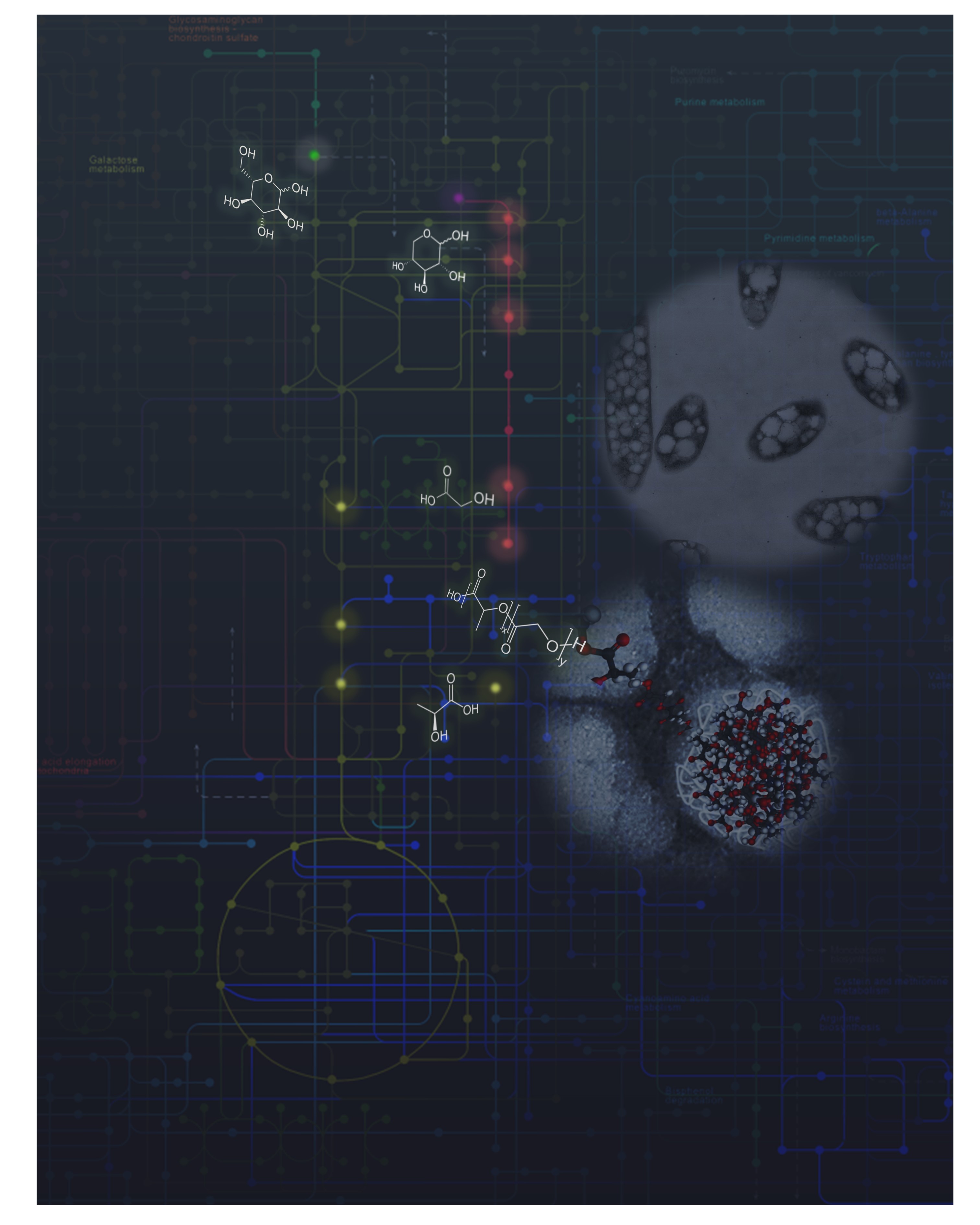 Poly(lactate-co-glycolate) (PLGA) is an FDA-approved random copolymer of DL-lactic and glycolic acids used in surgical sutures, prosthetics, drug delivery and tissue engineering. So far, PLGA has been manufactured only by chemical synthesis. Production of PLGA from renewable non-food biomass using engineered bacterial strains promises a sustainable route to production of this medically important polymer. Sang Yup Lee and So Young Choi from the Korea Advanced Institute of Science and Technology (KAIST) and Si Jae Park from Myongji University, apply a systems metabolic engineering strategy that integrates pathway engineering with computational analyses to optimize metabolic flux and yields to produce poly(lactate-co-glycolate) (PLGA) and related synthetic polymers in Escherichia coli.
Poly(lactate-co-glycolate) (PLGA) is an FDA-approved random copolymer of DL-lactic and glycolic acids used in surgical sutures, prosthetics, drug delivery and tissue engineering. So far, PLGA has been manufactured only by chemical synthesis. Production of PLGA from renewable non-food biomass using engineered bacterial strains promises a sustainable route to production of this medically important polymer. Sang Yup Lee and So Young Choi from the Korea Advanced Institute of Science and Technology (KAIST) and Si Jae Park from Myongji University, apply a systems metabolic engineering strategy that integrates pathway engineering with computational analyses to optimize metabolic flux and yields to produce poly(lactate-co-glycolate) (PLGA) and related synthetic polymers in Escherichia coli.
The above image relates to the paper by Sang Yup Lee and colleagues, available here now.
Please sign in or register for FREE
If you are a registered user on Research Communities by Springer Nature, please sign in